Iron
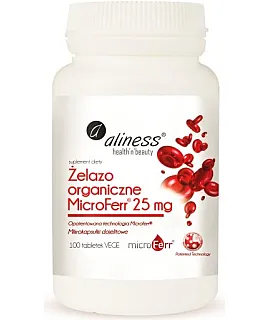
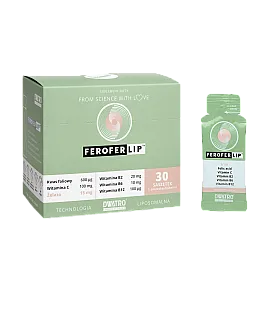
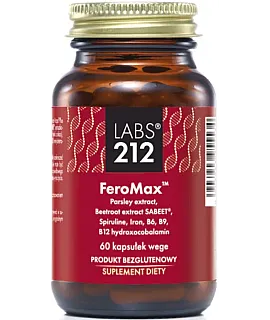
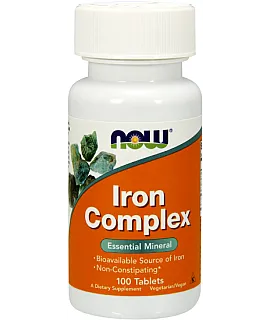
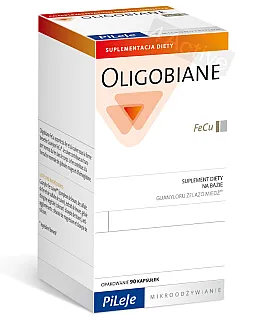
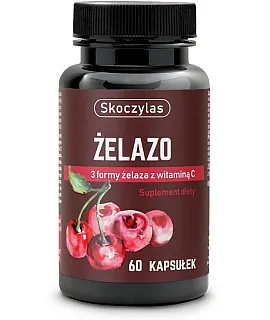
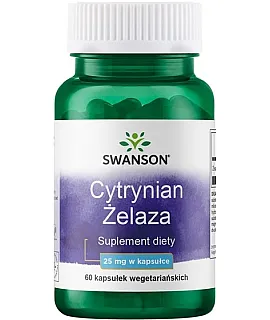
Iron is an essential element in the body that is involved in many important processes. Iron deficiency can lead to anemia, fatigue and a weakened immune system. Dietary supplements containing iron in tablets or capsules are a convenient way to correct deficiencies of this element. Read more
Symptoms of iron deficiency
Iron deficiency can manifest itself in a variety of ways. One of the most common symptoms is fatigue and tiredness that does not go away despite rest. Other symptoms include pale skin, weakness, shortness of breath, headaches and even hair loss. Long-term iron deficiency can lead to anemia, which requires treatment.
Patient groups most at risk for iron deficiency include pregnant women, people who engage in intensive sports, vegetarians and vegans, and people with gastrointestinal diseases, such as celiac disease, who have reduced nutrient absorption.
If you observe symptoms of iron deficiency in yourself, it is worth consulting your doctor or pharmacist. They can recommend testing your blood iron levels and selecting an appropriate dietary supplement.
Iron in tablets - types of supplements.
In a dietary supplement store you will find various types of iron products available without a prescription. The most popular are tablets and capsules, which contain iron in various doses and forms. Some preparations are additionally enriched with vitamin C, which aids in the absorption of iron, as well as folic acid and vitamin B6, important for the hematopoietic system.
Dietary iron comes in two forms - heme iron and non-heme iron. Hemic iron, derived from hemoglobin, among other things, is more easily absorbed by the body. Non-heme iron, present mainly in plant products, is absorbed less easily.
It is worth paying attention to the type and amount of iron in the supplement and adjust the form to your needs.
How to take iron supplements?
Iron supplements are best taken on an empty stomach, sipped with water. Do not sip them with milk, coffee or tea, which can reduce the absorption of this ingredient. To improve the absorption of iron, it is a good idea to take the supplement together with vitamin C, such as sipping orange juice.
The dosage of iron supplements depends on the degree of deficiency and the individual needs of the body. Usually 20 to 120 mg of iron per day is recommended, divided into several servings. Doses that are too high can cause stomach problems, such as nausea, vomiting or constipation. Always follow the directions on the package or consult your doctor about the dosage.
Iron supplementation should be done under the supervision of a doctor, who will order blood tests and assess the level of iron in the body. Iron levels that are too high can be harmful, so don't take supplements "as a backup" without confirming a deficiency.
Natural sources of iron in the diet
In addition to supplementation, it is important to provide iron with your diet. Good sources of this element are: meat (especially red meat), liver, egg yolks, dark bread, parsley, beans, soybeans, cocoa. To increase the absorption of iron from plant products, it is worth combining them with vitamin C, such as drinking lemon juice with a meal.
People on vegetarian and vegan diets should take special care to ensure an adequate supply of iron in their daily diet. Special iron preparations for vegans, which contain highly absorbable iron from natural plant ingredients, can help.
Remember that a healthy and balanced diet is the basis for proper functioning of the body. Dietary supplements should be a supplement, not a substitute for a varied menu rich in vegetables, fruits, whole grains and lean protein sources.
Iron for pregnant women
Pregnant women have an increased need for iron due to the intense development of the fetus and placenta. Deficiency of this element can lead to gestational anemia, premature birth or low birth weight of the baby. Therefore, iron supplementation is recommended for most pregnant women, usually starting in the second trimester of pregnancy.
Iron preparations for pregnant women should be tailored to their special needs. They often additionally contain folic acid, important for the development of the baby's nervous system, and other nutrients like vitamins and minerals. The doctor in charge of the pregnancy will select the appropriate supplement and determine the dosage individually for each patient.
Pregnant women should also make sure to eat a diet rich in iron, including eating lean meats, leafy vegetables, legumes, pumpkin seeds and dried fruits. It's worth combining sources of iron with vitamin C to increase its absorption. However, avoid drinking coffee and tea with meals, which hinder the absorption of this element.
Highlights of iron supplements:
- Iron is essential for the body to function properly, and a deficiency can lead to anemia and weakness.
- Symptoms of iron deficiency include fatigue, pallor, weakness, and hair loss. It is advisable to consult a doctor.
- Iron supplements are available without a prescription in the form of tablets, capsules, liquids and sachets. Different dosages are available.
- Iron supplements are best taken on an empty stomach, sipped with water or vitamin C juice. Dosage is determined by a doctor based on tests.
- Natural sources of iron in the diet are meat, liver, egg yolks, parsley, whole-grain bread, legumes, cocoa. It is beneficial to combine them with vitamin C.
- Pregnant women should supplement iron under the supervision of a doctor and follow a diet rich in this component to prevent pregnancy anemia.